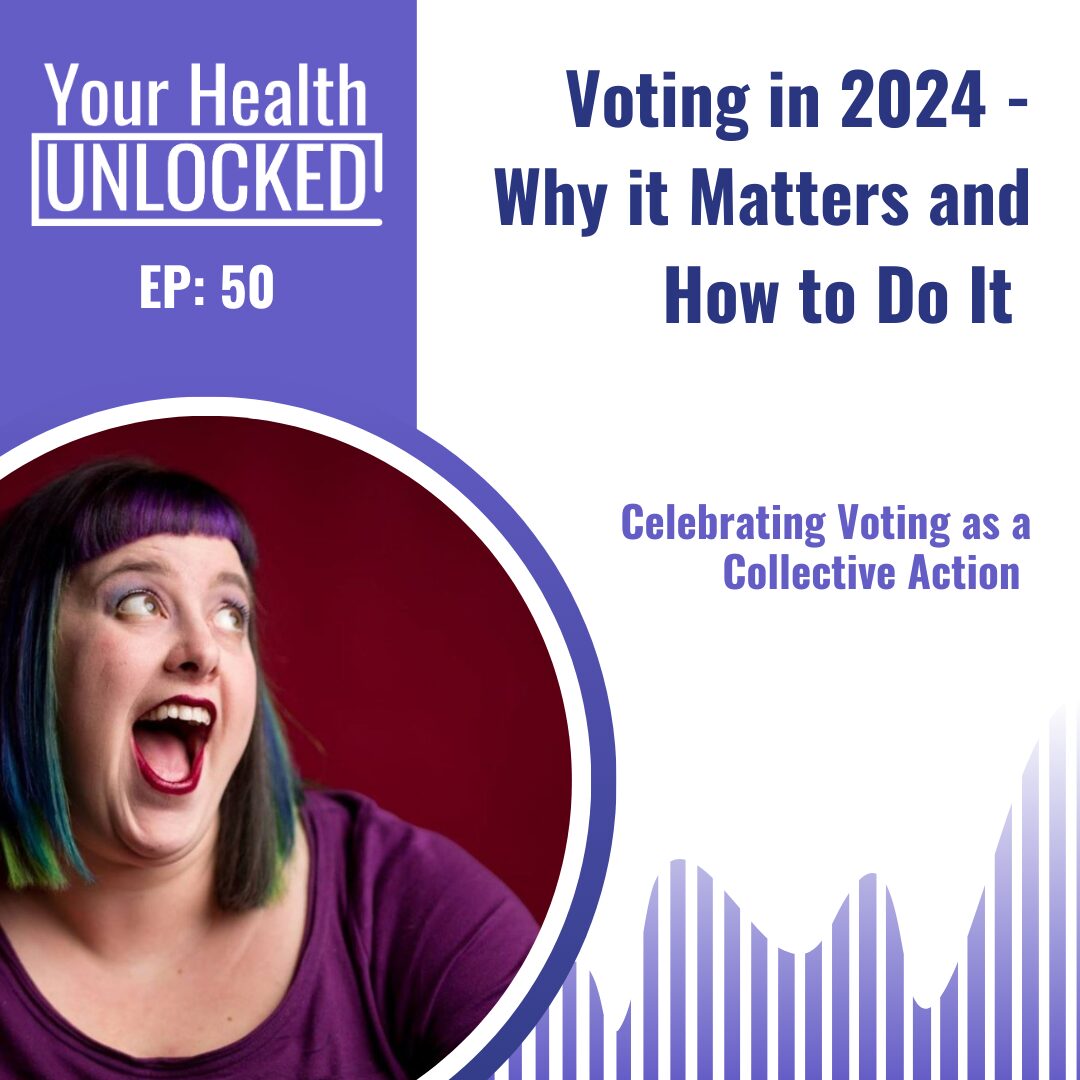
Your Health Unlocked Episodes
050: Voting in 2024 – Why it Matters and How to Do It
July 25, 2024
---
Your Health Unlocked Episodes
Publication Date: January 25, 2023
By: NWHN Staff

Breast cancer is the most common cancer in women in the United States, second only to skin cancer, with 264,000 cases of breast cancer diagnosed in women each year. Although most breast cancers are found in women age 50 and up, the CDC reports that about 9% of all new cases of breast cancer in the United States are found in women younger than 45 years of age.
In today’s episode of the Your Health Unlocked Podcast, Abigail Arons, the Chair of the Board of the National Women’s Health Network, tells us all about her experience with breast cancer after she was diagnosed at just 31 years old.
Abigail shares how she navigated her breast cancer journey from her initial diagnosis to her experiences with chemotherapy, a mastectomy, breast reconstruction, and the pressures of fertility preservation.
Abigail Arons, MPH, is a project director at the University of California, San Francisco (UCSF). Since 2001, she has led research and evaluation projects at UCSF focusing on reproductive and sexual health, including long-acting contraception, sexual health education, adolescent pregnancy prevention, cancer prevention, and HIV. Currently, she leads an NIH-funded randomized controlled trial on the impact of guaranteed income for low-income Black youth.
In addition to her professional expertise in reproductive health, Abigail took a crash course in breast cancer when she was diagnosed at age 31. After completing active treatment, she joined the Board of Breast Cancer Action, a national watchdog organization for the breast cancer movement, to advocate for more effective, less toxic treatments and a greater focus on the root causes of cancer, including environmental factors. Abigail is thrilled to serve as the Chair of the Board of the National Women’s Health Network.
Important terms :
Estrogen positive: Breast cancer that has receptors for the hormone estrogen is called estrogen receptor-positive (ER-positive) breast cancer.
Her2 positive: Some breast cancers have too much of a protein (receptor) called HER2 (human epidermal growth factor receptor 2) on the surface of their cells. This is called HER2-positive breast cancer.
Neoadjuvant chemotherapy is chemotherapy that a person with cancer receives before their primary course of treatment.
Complete pathological response is the lack of all signs of cancer in tissue samples removed during surgery or biopsy after treatment with radiation or chemotherapy.
An intravenous line (IV) is a soft, flexible tube placed inside a vein, usually in the hand or arm. Doctors use them to give a person medicine or fluids.
A cathaport is an implanted device that allows easy access to a patient’s veins to give intravenous fluids, blood transfusions, chemotherapy, and other drugs.
Tamoxifen is a hormone therapy for breast cancer in both women and men.
An oncologist is a doctor who treats cancer and provides medical care for a person diagnosed with cancer.
A mastectomy is the medical term for the surgical removal of one or both breasts, partially or completely.
Ovarian reserve refers to the reproductive potential left within a woman’s two ovaries based on the number and quality of eggs.
A tumor board is a group of doctors and other health care providers with different specialties that meets regularly at the hospital to discuss cancer cases and share knowledge.
References Mentioned
Love, S.M., Love, E. and Lindsey, K. (2015). Dr. Susan Love’s breast book. Boston, Ma: Da Capo Lifelong.
Griswold v. State of Connecticut case: https://www.britannica.com/event/Griswold-v-State-of-Connecticut
Support groups for caregivers:
Breast cancer resources:
NWHN volunteer intake form: https://nwhn.org/volunteer-interest-form/

